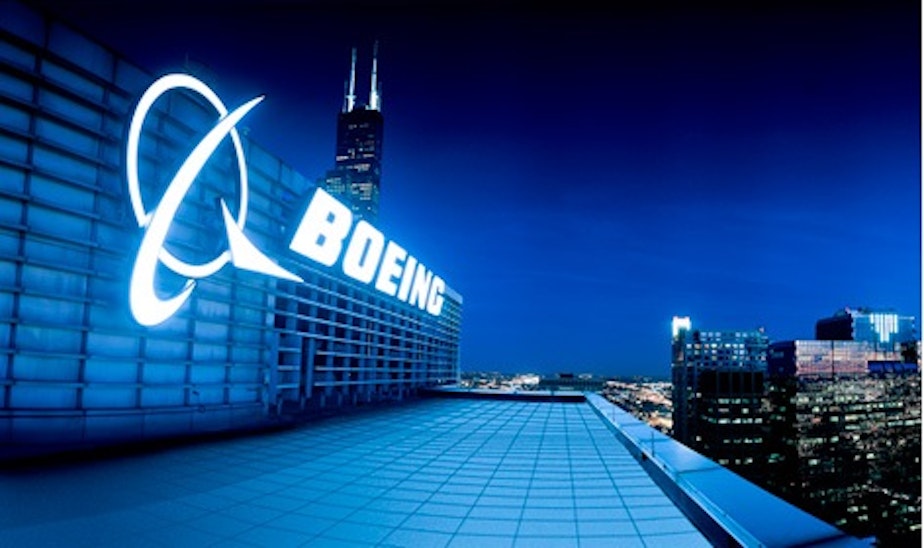Boeing's Big Move Struck Like 'A Death In The Family'

There is an old saying in the Pacific Northwest about the state’s largest private employer: “When Boeing sneezes, Seattle catches cold.”
The Puget Sound region has had its fair share of sniffles over the years, but 14 years ago Boeing made a decision that was one of the most dramatic in the company’s entire history.
March 21, 2001, began quietly in Seattle. Just three weeks earlier, the Nisqually earthquake had damaged property and rattled nerves around the region, and many people were still a little jumpy. But for some, the news that came mid-morning that March Wednesday was even more devastating.
Boeing was leaving town. Not the factories — at least not yet — but the corporate headquarters. The CEO and leadership team were headed for Denver, Dallas or Chicago. The New York Times said it was like “General Motors pulling out of Detroit or Coca-Cola abandoning Atlanta.”
It’s hard to overstate what a shocker this was. Boeing and Seattle were synonymous around the globe. Thousands of workers attracted here by the company shaped the region from World War II through the Jet Age.
Sponsored
The news stung. And so did one of the reasons Boeing gave for quitting Seattle. The press release said they wanted to locate their headquarters in a “culturally diverse city.”
Talk show host Dave Ross on KIRO radio lamented that the move made Seattle feel like a “backwater” and complained that when sports teams tried to abandon Seattle, they at least, “made a few threats before they left.”
Within a few months, Boeing settled on Chicago as the home of their new corporate headquarters. The executives packed up, and the new office opened there a few days before 9/11.
One local man with a unique perspective on the move is Jack Faris. Faris was a board member of the Greater Seattle Chamber of Commerce and was also in charge of the Boeing account for the ad agency Cole & Weber. He says that Boeing headquarters leaving Seattle was like a death in the family.
“When Boeing left for Chicago it was a serious blow, and it also felt, in a sense, unnecessary,” Faris says. “It seemed to be a consequence of some quirky circumstances that came together to make kind of a, you might say, Shakespearean tragedy.”
Sponsored
Faris says the stated reasons for the move — global connections and cultural diversity — just didn’t jibe with the reality of the situation. He says it all began with Boeing’s 1997 takeover of longtime rival, St. Louis-based McDonnell Douglas. The newly merged company stumbled, weathering strikes by machinists and engineers and making customers wait for jets. Faris describes the move as a sort of capitalist coup d’etat — with former McDonnell Douglas execs essentially snatching Boeing away from its hometown.
For Faris, the “Shakespearean tragedy” was the needless loss of a longtime fixture in the community. And like so many locals, Faris still takes it personally — though it was more ego blow than economic disaster.
“I can't help wishing that the headquarters were here,” says Faris. “Seattle and the history of Boeing are strongly intertwined and whatever the business advantages are, and I'm sure there're some that I don't see clearly, it is a loss for this community that the flag isn’t flown here, the flag of leadership.”
The headquarters move took 500 white-collar jobs out of Seattle. It has since built a factory in South Carolina, and experts predict Boeing will continue to expand manufacturing operations outside the Pacific Northwest. But the company is still a huge factor in a local economy that continues to diversify.
